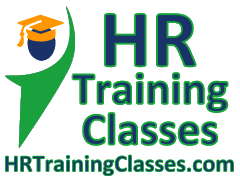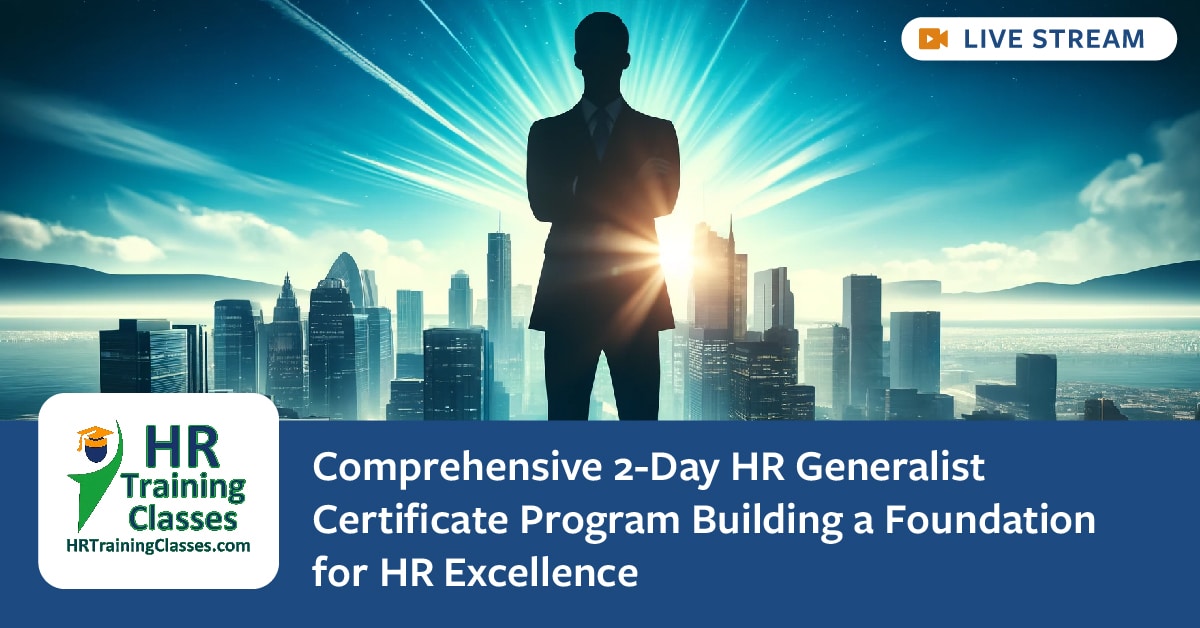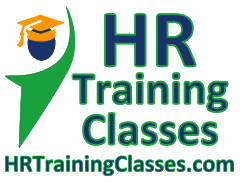Instructor: Alicia Villegas
Continuing Education Credits:
- HRCI – 14 HR(General) Credits
- SHRM – 14 PDC’s
Schedule: 10:00 AM – 6:00 PM Eastern Time on Both Days (Detailed Agenda Below)
Program Overview
In our intensive two-day training, carefully crafted for HR professionals and managers, we delve deeply into the crucial role of performance appraisal within an organization. This workshop encompasses more than just the appraisal process; it underscores the necessity for managers to develop a comprehensive understanding of the roles they assess, enhancing the accuracy and relevance of evaluations.
As we journey through the multifaceted world of performance appraisal, participants will acquire the expertise necessary to set consistent performance standards. This enables the identification of areas for growth and the development of strategic plans for both individual advancement and team development.
Furthermore, we’ll illuminate the importance of fostering employee engagement, a key driver of performance. We’ll also cover the techniques for delivering effective feedback, which plays a critical role in promoting continuous improvement. Additionally, we will explore various biases that may potentially impact the evaluation process and provide strategies to mitigate their effects.
Lastly, we will shed light on the use of Performance Improvement Plans (PIPs) and Individual Development Plans (IDPs), powerful tools for managing underperformance and fostering employee growth respectively. With these comprehensive insights, this training equips participants with a rich repertoire of skills to optimize the performance appraisal process and catalyze organizational success.
Key Features
- A comprehensive two-day masterclass designed for HR professionals and managers heavily involved in the Performance Appraisal process.
- In-depth coverage of key topics including understanding the roles being appraised, performance appraisal methods, fostering a culture of engagement, and setting SMART goals.
- Interactive workshops, hands-on exercises, group discussions, engaging role-plays, and practical case studies including role-playing of completing evaluations.
- Facilitated by industry veterans with years of real-world experience and deep industry knowledge.
- Certificate of completion awarded upon successful completion.
Program Objectives
Upon completion of the program, participants will be able to:
- Understand why performance appraisal is important
- Engage effectively in the performance appraisal process
- Apply various methods to conduct performance appraisals, such as 360-degree, Management by Objectives (MBO), Behaviorally Anchored Rating Scale (BARS), etc.
- Deliver regular, specific, honest, and constructive feedback
- Recognize and counteract common evaluation biases
- Understand and implement different types of performance evaluations
- Adopt the best approach for performance appraisal for their organization
- Evaluate the process and employee satisfaction resulting from the appraisal process
Topics Covered
- Introduction to Performance Management
- Objectives of Performance Management
- Aligning Performance with Organizational Goals
- Key Performance Indicators (KPIs)
- Setting SMART Goals for Performance
- The Performance Management Cycle
- Tools for Performance Assessment
- Designing Performance Appraisal Systems
- 360-Degree Feedback Mechanisms
- Self-Assessment in Performance Appraisals
- Legal Aspects of Performance Management
- Avoiding Bias in Performance Evaluations
- Competency-Based Assessments
- Conducting Effective Performance Reviews
- Behavioral Assessment Scales
- Developing Performance Improvement Plans
- Coaching for Performance Enhancement
- Counseling for Underperforming Employees
- Employee Development and Career Pathing
- Succession Planning and Performance
- Retention Strategies and Performance
- Employee Engagement and Performance
- Performance-Driven Compensation
- Incentives and Rewards Systems
- Non-monetary Rewards and Recognition
- Managing Team Performance
- Cross-Functional Team Performance
- Remote Workforce Performance Management
- Diversity and Inclusion in Performance Management
- Performance Management in Agile Environments
- Feedback Cultures and Open Communication
- Real-Time Feedback and Performance
- Performance Analytics and Data-Driven Decisions
- Technology in Performance Management
- Performance Management Software Solutions
- Performance Management for Different Generations
- Performance Management in Global Teams
- Cultural Competence in Performance Management
- Ethical Considerations in Performance
- Emotional Intelligence and Performance Management
- Conflict Resolution in Performance Issues
- Legal Compliance in Performance Records
- Performance Audits
- Performance and Organizational Change
- Turnaround Strategies for Poor Performance
- Managing High Performers
- Stress Management and Performance
- Work-Life Balance and Performance
- Performance Management and Burnout Prevention
- Time Management and Productivity
- Project Management and Team Performance
- Quality Management and Performance Standards
- Benchmarking Performance against Industry Standards
- Balancing Quantitative and Qualitative Performance Measures
- Performance and Corporate Social Responsibility
- Performance Management and Innovation
- Gamification of Performance Management
- Performance Management in Sales Teams
- Performance Management in Customer Service
- Critical Incident Method in Performance Evaluation
- Graphic Rating Scales
- Forced Ranking and Bell-Curving in Performance
- Management by Objectives (MBO)
- Managing Dismissals and Performance
- Documentation and Record-Keeping
- Training Assessors for Performance Reviews
- Role of Leadership in Performance Management
- Negotiation Skills for Performance Discussions
- The Psychology of Performance Management
- Performance Management and Team Dynamics
- Creating a Performance-Oriented Culture
- The Future of Performance Management
- Peer Review Processes
- Integrating Corporate Vision with Performance
- Performance Management and Corporate Governance
- Risk Management in Performance Evaluations
- Performance and Environmental Factors
- Performance Management and Mental Health
- Resilience Training for Performance Stability
- Building Accountability in Performance Management
- Performance Management for Executive Teams
- Evaluating the Efficacy of Performance Management Systems
- Customizing Performance Management to Industry Needs
- Talent Acquisition and Performance Expectations
- Onboarding and Performance Management
- Exit Interviews and Performance Feedback
- Continuous Learning and Performance Development
- Leveraging Employee Strengths in Performance Management
- Action Planning and Follow-Up in Performance Management
The goal of covering these topics in such detail is to provide participants with a well-rounded, thorough understanding of the performance appraisal process. This comprehensive knowledge will enable HR professionals and managers to conduct more effective, fair, and meaningful performance evaluations, leading to improved employee satisfaction and enhanced organizational performance.
Target Audience
- Human Resources Managers: Who oversee performance management systems and are responsible for their implementation and maintenance.
- Department Heads and Senior Managers: Who need to understand how to align departmental goals with individual performance metrics.
- Team Leaders and Supervisors: Who conduct regular performance reviews and provide ongoing feedback to their team members.
- Talent Development Specialists: Focused on employee growth and career development within the organization.
- Organizational Development Professionals: Interested in improving company culture and organizational effectiveness through performance management.
- Employee Relations Officers: Who address concerns related to employee performance and workplace dynamics.
- Small Business Owners: Who need to manage performance across their organization without a dedicated HR department.
- Project Managers: Who lead teams and need to ensure that project goals are met through effective team performance.
- Training and Development Managers: Who need to identify performance gaps and develop training programs accordingly.
- Change Management Consultants: Who assist organizations in transitioning to new performance management methodologies.
- HR Business Partners: Who work closely with business leaders to align human resources policies with business needs.
- Performance Improvement Coordinators: Who are specifically tasked with tracking and improving the performance of individuals and groups within an organization.
- C-Suite Executives: Especially in smaller companies, who want to establish a performance management framework that drives strategic objectives.
- Labor Relations Specialists: Who require an understanding of performance management for collective bargaining and contract negotiations.
- Quality Assurance Professionals: Who need to ensure that performance standards are met and maintained.
AGENDA
Please note that all times are in Eastern Time (ET).
Day 1:
- 10:00 – 10:15 am: Welcome and Introduction: Orientation and overview of the training program.
- 10:15 – 11:15 am: Understanding Roles and Performance: Discussion on the importance of role clarity in performance appraisal, interactive session to develop skills in defining and understanding roles.
- 11:15 – 11:30 am: Break
- 11:30 – 12:30 pm: Fostering Employee Engagement: Exploration of strategies to enhance employee engagement, group activity to develop an engagement plan.
- 12:30 – 2:00 pm: Setting SMART Goals: In-depth session on SMART goals, hands-on activity to practice setting SMART goals for performance improvement.
- 2:00 – 3:00 pm: Lunch Break
- 3:00 – 4:00 pm: The Art of Feedback: Introduction to feedback strategies, role-play exercise to practice giving and receiving feedback.
- 4:00 – 4:15 pm: Break
- 4:15 – 6:00 pm: Implementing Performance Improvement Plans (PIPs): Detailed overview of PIPs, case study analysis, group activity to create a sample PIP.
Day 2:
- 10:00 – 10:15 am: Recap of Day 1 and Overview of Day 2: Brief recap of previous day’s learning and introduction to the day’s agenda.
- 10:15 – 11:15 am: Unraveling Evaluation Biases: Session on common evaluation biases, interactive activity to identify and mitigate biases in sample scenarios.
- 11:15 – 11:30 am: Break
- 11:30 – 12:30 pm: Different Types of Performance Evaluations: Overview of various performance evaluation methods, discussion on choosing the appropriate method for different scenarios.
- 12:30 – 2:00 pm: Individual Development Plans (IDPs): Session on the role of IDPs in employee development, hands-on exercise to create a sample IDP.
- 2:00 – 3:00 pm: Lunch Break
- 3:00 – 4:00 pm: Developing Effective Appraisal Strategies: Comprehensive session on integrating the various elements of performance appraisal into an effective strategy, group activity to develop a strategic plan for a case study organization.
- 4:00 – 4:15 pm: Break
- 4:15 – 6:00 pm: Wrap-up and Reflection: Open discussion to consolidate learning, reflect on key takeaways, and discuss application in participants’ respective roles. Certificate distribution and closing remarks.
This detailed agenda ensures a well-structured and immersive learning experience that covers the full spectrum of performance appraisal, offering both theoretical knowledge and practical skills. The interactive sessions and hands-on activities provide participants with opportunities to apply their learning in a supportive environment, enhancing their readiness to implement these skills in their professional roles.







